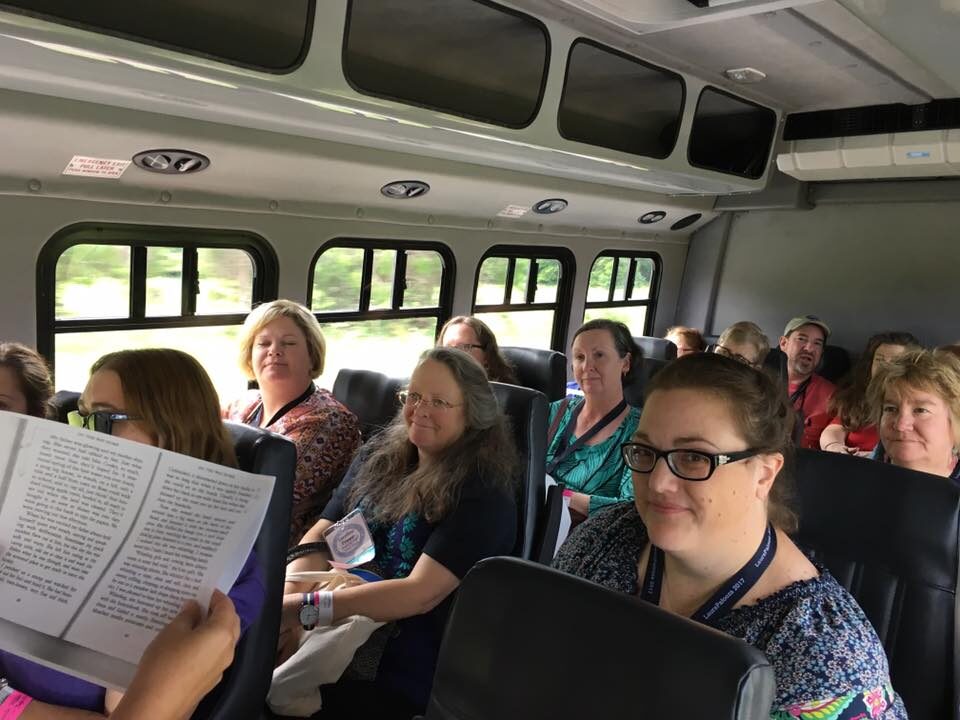“We are going to be late getting the hay in from the west meadow. Can’t you come and rake it or us?” said The Man of the Place.
I could and did; also I drove the team on the hay fork to fill the big barn, for such is the life of a farmer’s wife during the busy season.
“The colt has sprained his ankle. Come pet him while I rub on some liniment, and while you are there I wish you’d look at the red heifer’s bag and see what you think best to do for that swelling on it.”
And so I halter broke the colt while The Man of the Place bathed the lame ankle and then we decided that the red heifer had been bee stung and bathed her udder with salt and water.
I hae finally got the weakly calf into good growing condition and turned it out in the pasture with the others, for I am by way of being an understudy for the veterinarian.
“What would you raise next year on the land we cleared of brush down by the creek? The hay on it is too think and it must be broken up?” This was the question for my consideration at the breakfast table, and my answer was, “Raise the same crop on that as you do on the remainder of the land on that side of the creek. One large field is better than two small ones and time is saved in working. Put it into the regular rotation with the rest.”
Not that The Man of the Place would do as I said unless he agreed with me, but getting my ideas helps him to form his own opinions and he knows that two heads are better at planning than one.
One of my neighbors is managing the farm this summer during the absence of her husband. She planted and cultivated, has attended to the harvesting and threshing and haying. She, with the children, cares for the horses and cows, the pigs and poultry. She buys and sells and hires and fires. In short, she does all the work and business that her husband would do if he were here and keeps up her own work besides.
United States Commissioner of Education, Philander P. Claxton, says that on a farm it is the “Know-All and Do-Everydumthing” that makes for success. If this is true for farmers it is much more for their wives. A farmer’s wife is expected to, and usually does, know as much about the farm as her husband and in addition she must know her own business of housekeeping and homemaking.
A farmer to be successful must understand his machinery and be a sort of blacksmith. He must be a carpenter, a road builder, enough of a civil engineer to know how to handle the creeks and washouts on his farm. He must, of course, understand all about the care of the animals on the farm in sickness and in health; he must know all about the raising of crops and handling of soils, the fighting of pests and overcoming of weather conditions and in addition must be a good business man so that he shall not lose all the fruits of his toil in the buying and selling end of the game.
Besides being a helper in all these things with brains, and muscle if necessary, the farmer’s wife must know her own business, which includes the greatest variety of trades and occupations ever combined in one all-around person. Think of them! Cook, baker, seamstress, laundrywoman, nurse, chambermaid and nurse girl. She is a poultry keeper, an expert in dairy work, a specialist in canning, preserving and pickling, and besides all else she must be the mother of the family and a smiling hostess.
Dr. Claxton is advocating a change in rural schools so that they shall prepare farmers and farm women for their work, for as he says, “A man’s life is his work! And a woman’s life is her work!”
From “The Farm Wife (7)” by Laura Ingalls Wilder, published in The Missouri Ruralist, August 5, 1919




Comment1
Such a timely essay for August as it is County Fair time and we honor our farmers for all the good things they bring to society. Laura knew of what she wrote. Let’s all do our humble best at what we do, too!
Comments are closed.